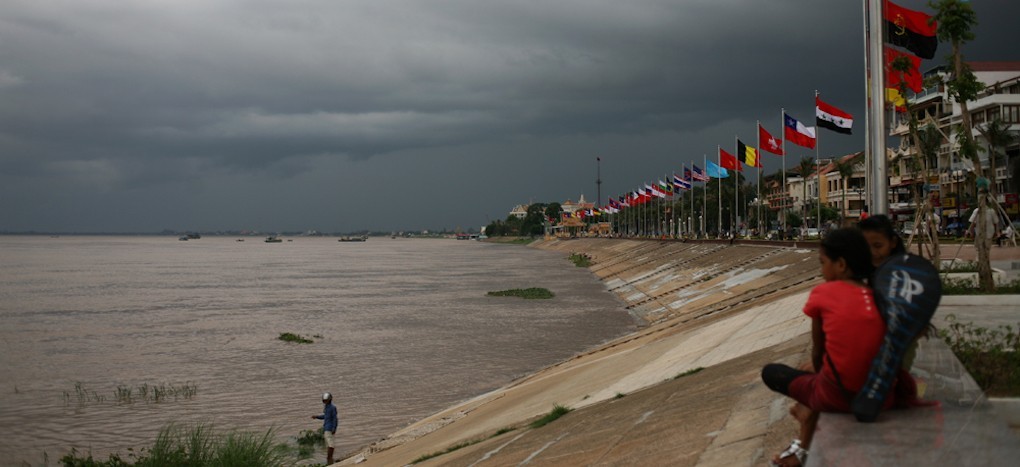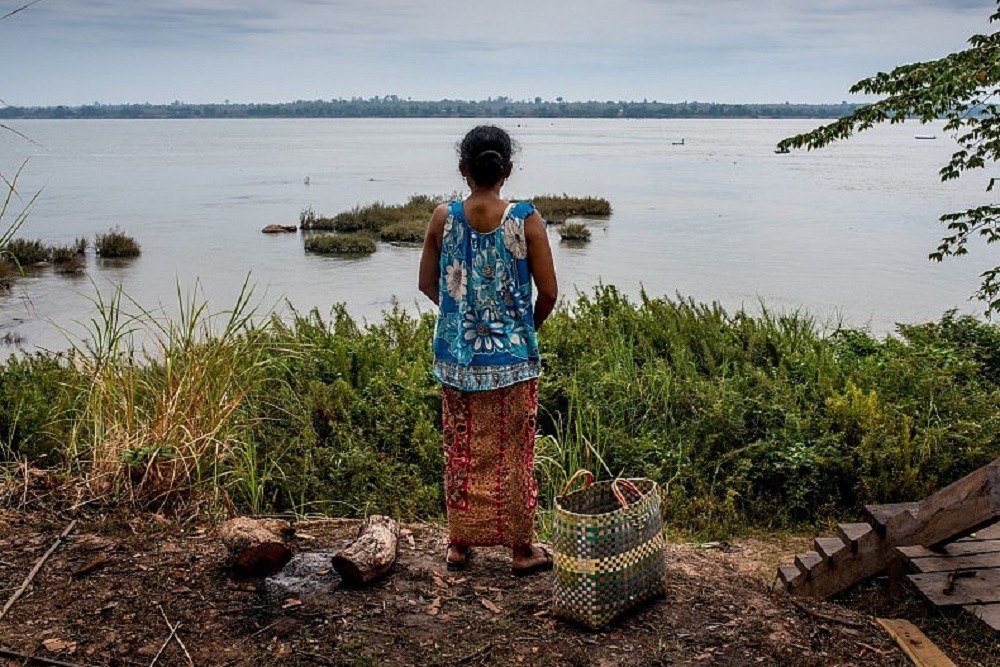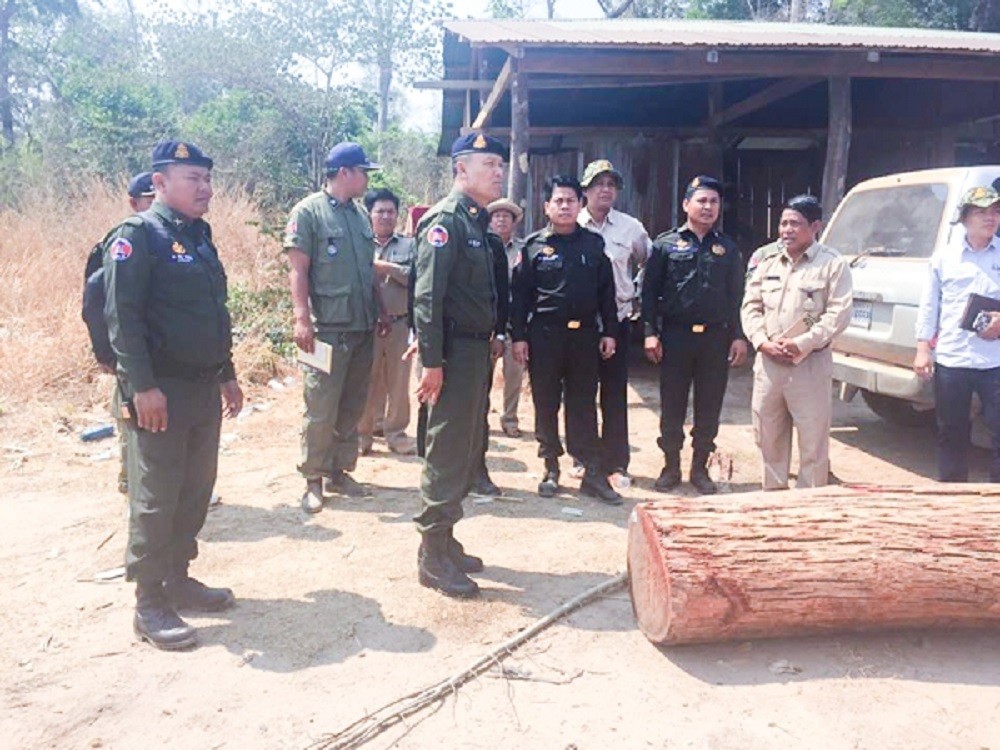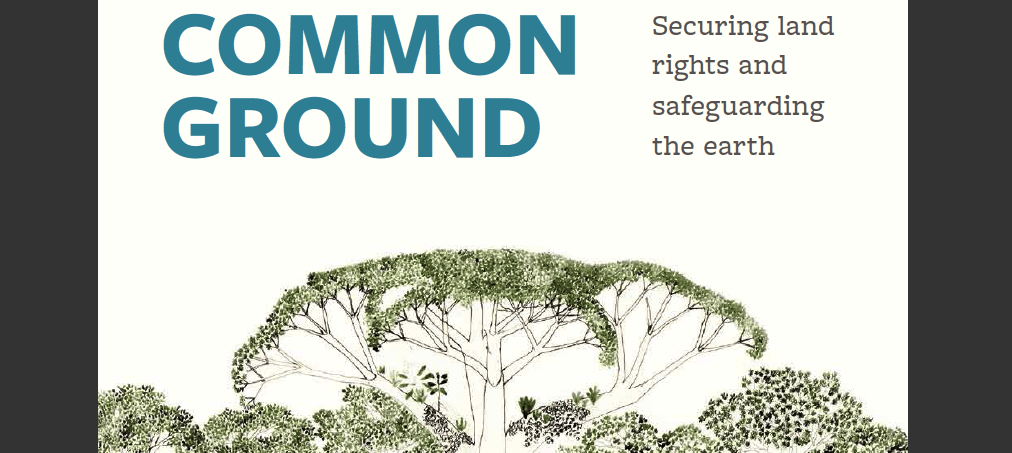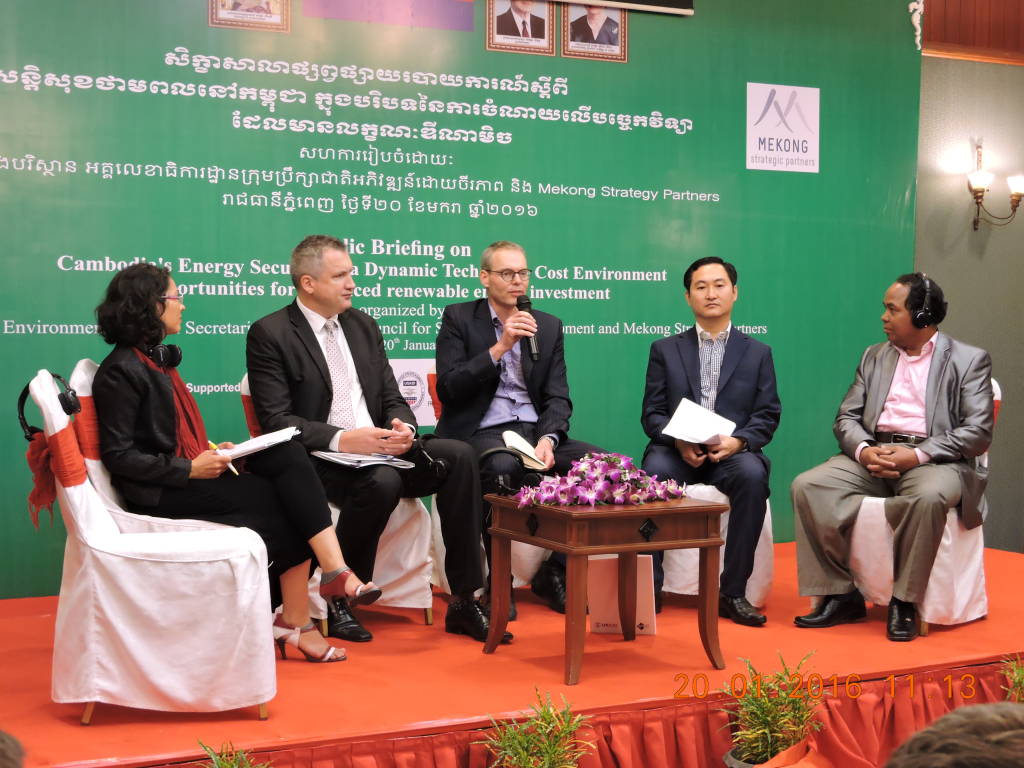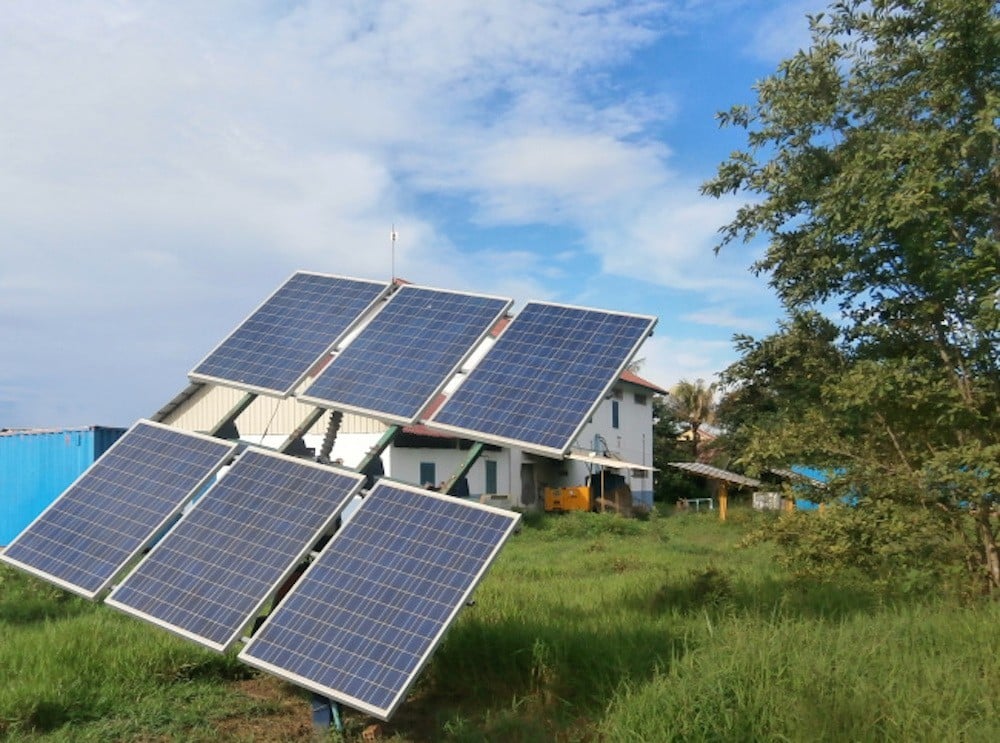Cambodia’s passenger train services resumed regular operations between capital Phnom Penh and southwestern Sihanoukville on Saturday after a 14-year hiatus.
Tag: Cambodia
Cambodia Cancels Screening of Film About Murdered Environmentalist Chut Wutty
The Cambodian government has stopped the public screening of a documentary about the life and struggle of Chut Wutty, an environmentalist who was killed in 2012 while exposing the activities of an illegal logging plantation.
Mekong Dams Not Cause of Drought
Prime Minister Hun Sen on Monday disputed the idea that water shortages along the Mekong River have been exacerbated by two massive hydropower dams being developed by Laos, saying the drought currently afflicting much of mainland Southeast Asia was caused only by “the sky.”
Thailand’s transparency deficit: Haste makes waste on mega-projects
One of the country’s top bankers is stressing the need for faster action to transform Thailand into a hub for CLMV countries (Cambodia, Laos, Myanmar and Vietnam).
Kevin Tan, CEO of HSBC Thailand, was speaking during an interview on Vietnam’s increasing attractiveness to foreign investors. Vietnam’s gross domestic product grew a whopping 797 per cent between 1995 and 2014, from US$20.74 billion to $186.2 billion. Thailand’s GDP growth was sluggish in comparison, rising from $169.28 billion to $404.8 billion over the same period.
And with big names like Intel, Apple and Samsung now showing interest in Vietnam, it seems the times are against Thailand.
Blocking the Flow: Cambodia’s Sesan II Dam
In Cambodia’s far north, the Mekong is under threat from one of the most controversial environmental project in the country. Luc Forsyth and Gareth Bright are on a journey to follow the Mekong River from sea to source, fully immersing themselves in the adventure of exploring one of the world’s most famous rivers. Over the coming months, The Diplomat will share some of the stories they’ve found along the river.
Deforestation Taskforce Files Complaint Against Five Companies
The National Anti-Deforestation Committee (NADC) filed complaints to provincial courts against five companies that obtained economic land concessions (ELCs) from the government after discovering irregularities in the companies’ timber stocks after a three-day inspection.
Common Ground: Securing land rights and safeguarding the earth
Up to 2.5 billion people depend on indigenous and community lands, which make up over 50 percent of the land on the planet; they legally own just one-fifth. The remaining five billion hectares remain unprotected and vulnerable to land grabs from more powerful entities like governments and corporations. There is growing evidence of the vital role played by full legal ownership of land by indigenous peoples and local communities in preserving cultural diversity and in combating poverty and hunger, political instability and climate change. The importance of protecting and expanding indigenous and community ownership of land has been a key element in the negotiations of the Sustainable Development Goals and the Paris Agreement on climate change, and is central to their successful implementation. This report launches a Global Call to Action on Indigenous and Community Land Rights, backed by more than 300 organizations all over the world. It is a manifesto of solidarity with the ongoing struggles of indigenous peoples and local communities seeking to secure their land rights once and for all.
With AIIB, Nation Diversifies Funding Options
Though it’s extremely early days, experts this week welcomed Cambodia’s membership to the nascent China-led Asian Infrastructure Investment Bank (AIIB), saying it would provide much-needed diversity of funding for the nation’s infrastructure and connectivity needs.
Launched in Beijing last weekend, the multilateral development bank aims to support infrastructure growth in the Asia-Pacific region through the provision of loans, and supports China’s ambitious “One Belt, One Road” initiative to boost trade and connectivity across the Eurasian landmass.
Report recommends actions to increase Cambodia’s renewable energy use
The Cambodian National Council for Sustainable Development (NCSD), in collaboration with U.S. Agency for International Development (USAID) and its partners, launched a report today that highlights Cambodia’s need to set a formal target for renewable energy generation for sustainable and secure economic growth.
The independent report entitled “Switching On: Cambodia’s Path to Sustainable Energy Security,” supported by the USAID-funded Mekong Partnership for the Environment (MPE) project, recommends that the Cambodian government clarify laws on renewables – such as rooftop solar power – to supply electricity.
Solar Power in the Spotlight
The government should invest more in sustainable energy, with a focus on solar power, experts told a conference on energy security yesterday, adding that this could reduce Cambodia’s dependence on large-scale hydropower projects and coal-fired plants.
John McGinley, managing director of the Mekong Strategic Partners, told the conference at the Himawari that although solar power would not entirely replace existing energy sources, greater use of solar energy would reduce emissions of carbon dioxide. Mr. McGinley added that the installation cost of solar power is affordable compared to large hydropower and coal-fired generators.
Cambodia’s electricity is mainly derived from hydropower, coal plants, and imported energy from Thailand and Vietnam. According to the Ministry of Mines and Energy, the country’s six hydropower dams generate about 60 percent of total electricity.



